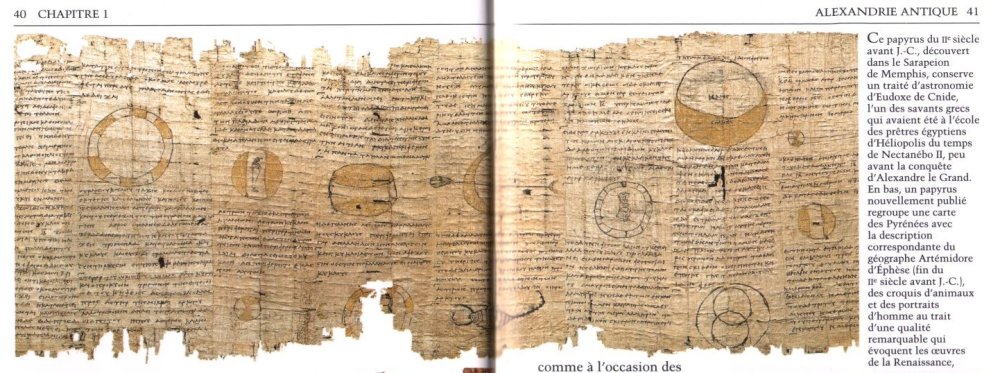


|
One interesting example of modern gossip about Eudoxus is the literature about a papyrus manuscript now in the Louvre:

It's beautiful, in fact the oldest illustrated fragment we have from Greek science, but it has almost nothing to do with Eudoxus. There is an interesting discussion of this and other problems of interpreting ancient sources in an excerpt from a book by Berggren and Evans. It is quite readable, and will tell you how experts approach these matters (in a word, cautiously). Some of the points raised by the English article are discussed more intelligently. We know even less about other things the English article asserts confidently (about Pythagoras, for example). Almost everything claimed here about all these people comes from long after they presumably lived, and is not even very consistent. The Wikipedia articles do not make this at all apparent. The biographical material in both is largely fiction. After all, every well known Greek mathematician is said to have gone to Egypt at least once, to pick up some local and ancient wisdom. Neither article even tells us the sources precisely, violating basic Wikipedia rules. How do they manage to escape the rules? |